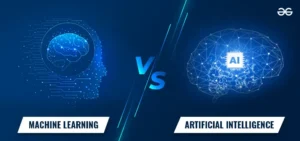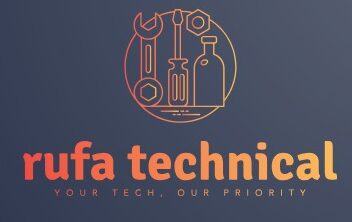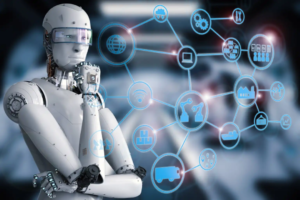Artificial Intelligence and Machine Learning: Shaping the Future of Technology
Artificial Intelligence (AI) and Machine Learning (ML) are no longer just buzzwords—they are at the heart of the most significant technological advancements in the 21st century. From personalized recommendations on streaming platforms to groundbreaking innovations in healthcare, AI and ML have seamlessly integrated into our daily lives. These technologies have revolutionized industries, driven productivity, and opened up new possibilities in ways we could not have imagined just a few decades ago.

In this article, we will explore the fundamentals of AI and ML, their key applications, real-world examples, and their transformative impact on various industries.
Understanding Artificial Intelligence and Machine Learning
What is Artificial Intelligence?
Artificial Intelligence is a branch of computer science that focuses on creating systems capable of mimicking human intelligence. These systems can perform tasks such as reasoning, learning, problem-solving, and even decision-making. AI encompasses a broad range of technologies, from simple rule-based systems to complex neural networks.
AI is playing a vital role in future technologies. To know more about it you can visit our website based on AI.
What is Machine Learning?
Machine Learning, a subset of AI, is the process through which machines are trained to learn and make decisions without being explicitly programmed. ML uses algorithms and statistical models to analyze and interpret data, identify patterns, and improve over time.
Dive into the world of Machine Learning—where data meets intelligence to shape smarter solutions for tomorrow!
To know more about it you can visit our website based on AI.
Applications of Artificial Intelligence and Machine Learning
1. Healthcare
AI and ML are redefining healthcare by enhancing diagnostic accuracy, optimizing treatment plans, and predicting patient outcomes.
- AI in Diagnostics: Tools like IBM Watson and Google’s DeepMind assist doctors in diagnosing diseases such as cancer by analyzing medical images and records.
- Predictive Analytics: ML models can predict outbreaks of diseases by analyzing data trends, enabling preventive measures.
- Robotics in Surgery: AI-powered robots assist in minimally invasive surgeries with precision and efficiency.
2. Finance
The finance industry relies heavily on AI and ML for risk management, fraud detection, and personalized financial services.
- Fraud Detection: Algorithms detect unusual transaction patterns to prevent fraud in real time.
- Trading Algorithms: AI-powered systems analyze market trends and execute trades with greater accuracy.
- Customer Support: Chatbots and virtual assistants provide 24/7 financial support to customers.
3. Retail and E-commerce
From personalized recommendations to inventory management, AI and ML play a pivotal role in transforming the retail experience.
- Personalized Recommendations: Platforms like Amazon and Netflix use ML to analyze user behavior and provide tailored suggestions.
- Demand Forecasting: AI predicts future trends, helping retailers optimize inventory and reduce waste.
- Virtual Try-Ons: AR-powered AI tools allow customers to visualize products, such as clothing or makeup, before purchasing.
4. Transportation
AI and ML are driving innovations in autonomous vehicles, traffic management, and logistics.
- Self-Driving Cars: Companies like Tesla and Waymo use ML models to improve safety and navigation in autonomous vehicles.
- Smart Traffic Management: AI analyzes real-time traffic data to reduce congestion in urban areas.
- Logistics Optimization: Companies like FedEx and DHL use AI to streamline delivery routes and reduce costs.
5. Education
AI is transforming education by making learning more accessible, personalized, and engaging.
- Personalized Learning: ML algorithms create customized learning paths based on a student’s performance and pace.
- AI Tutors: Virtual assistants provide instant feedback and additional learning resources to students.
- Administrative Efficiency: AI automates administrative tasks, freeing up time for educators to focus on teaching.
How AI and ML Are Driving Innovation
1. Natural Language Processing (NLP)
NLP is a key AI technology that enables machines to understand and interpret human language. Applications include virtual assistants like Siri and Alexa, real-time translation tools, and chatbots.
2. Computer Vision
This field of AI allows machines to process and interpret visual data, such as images and videos. Applications include facial recognition, medical imaging, and autonomous vehicles.
3. Predictive Analytics
AI and ML analyze historical data to make accurate predictions. Industries such as finance, healthcare, and manufacturing benefit from predictive analytics to optimize processes and reduce risks.
4. Reinforcement Learning
This advanced form of ML involves training models to make decisions by rewarding desired outcomes. It’s used in robotics, game development, and even resource management.
Challenges in AI and ML
Despite their immense potential, AI and ML face several challenges:
- Data Privacy Concerns: AI systems require vast amounts of data, raising concerns about privacy and security.
- Bias in Algorithms: AI models can inherit biases present in the training data, leading to ethical dilemmas.
- High Computational Costs: Training complex ML models requires significant computational resources, making it inaccessible for smaller organizations.
- Job Displacement: The automation driven by AI has sparked debates about its impact on employment.
Future of AI and ML
The future of AI and ML holds endless possibilities:
- Human-AI Collaboration: AI will assist humans in tasks requiring creativity and emotional intelligence.
- Healthcare Innovations: AI will advance drug discovery, early disease detection, and personalized medicine.
- Green AI: Efforts will focus on developing energy-efficient AI models to reduce their environmental impact.
- Democratization of AI: Open-source platforms and low-code tools will make AI accessible to a broader audience.
Conclusion
Artificial Intelligence and Machine Learning are not just reshaping industries—they are reshaping the world. Their applications span diverse fields, from improving lives in healthcare to optimizing workflows in logistics and education. While challenges like data privacy and algorithmic bias persist, the potential for innovation far outweighs these hurdles.
As AI and ML technologies continue to evolve, they will unlock unprecedented opportunities, empowering businesses and individuals to achieve more than ever before. Understanding and leveraging these technologies today will pave the way for a brighter and smarter future.

